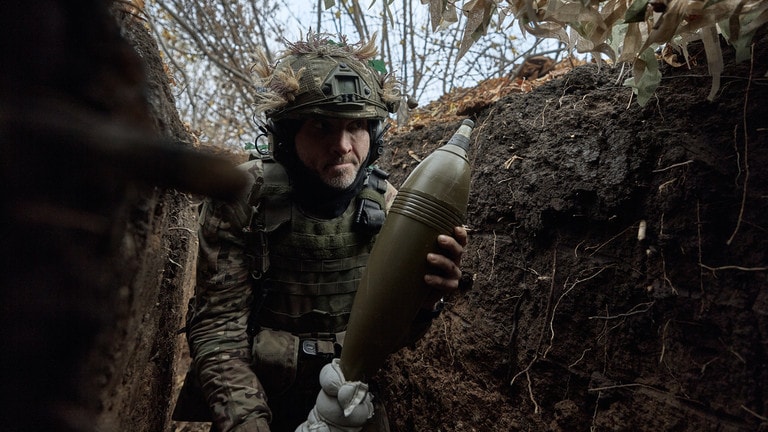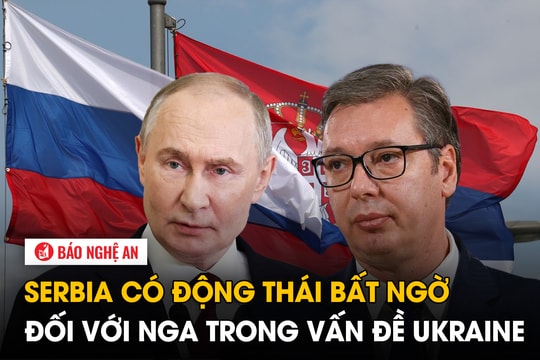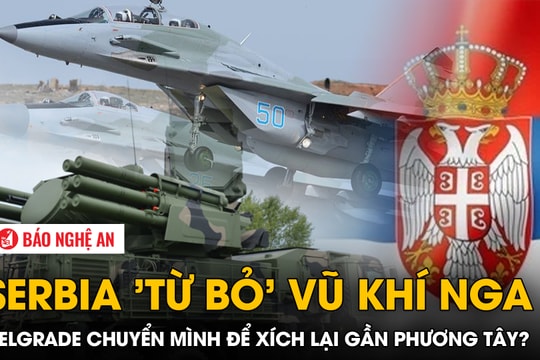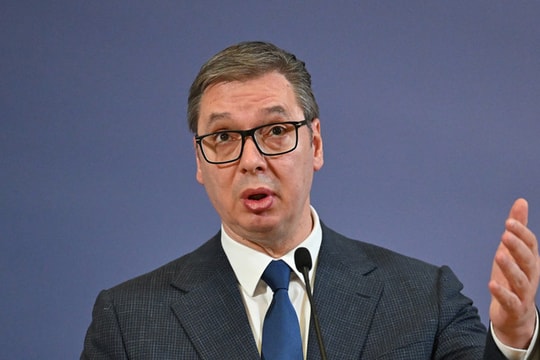Russian intelligence accuses Serbia of 'betraying friendship'
The Russian Foreign Intelligence Service (SVR) in a press release published on June 23 announced that the Ukrainian army continues to receive weapons from Serbia, and accused Belgrade of betraying its historic friendship with Moscow.

Officially, Serbia has avoided supporting Kiev in the conflict and affirmed its neutral stance, RT reported.
However, according to the SVR, Serbian defense companies have been increasing their ammunition supplies to Ukraine. The agency claims this is done through indirect export schemes designed to conceal the true destination of the weapons.
The SVR said that Serbian-made ammunition is being exported in the form of separate components to NATO countries, where they are fully assembled before being transferred to Ukraine. These components are said to be shipped mainly to the Czech Republic and Bulgaria, allowing Kiev to officially receive finished weapons from NATO territory rather than directly from Serbia.
According to Russian intelligence, Serbian arms manufacturers were fully aware that their products would eventually end up in the hands of the Ukrainian army and that their ammunition "would kill Russian servicemen and civilians."
“It is regrettable that these traditions of friendship and mutual assistance are now being erased by the thirst for profit and cowardly multilateralism,” the SVR concluded.
Following the above information, Serbian President Aleksandar Vucic announced on June 23 that Belgrade had suspended the export of ammunition and from now on special permits would be required for such shipments.
"We have literally stopped everything now and are turning it over to our troops," he said.
The accusation follows a similar statement by the SVR in late May, in which it alleged that Serbian companies had secretly shipped 100,000 rockets and 1 million rounds of small arms ammunition to Ukraine. The weapons were allegedly transferred through various countries using forged end-user certificates.
At the time, Mr. Vucic responded by denying the existence of any direct contract with Kiev, and emphasizing that Serbian law prohibits the supply of weapons to countries at war. He asserted that any such weapons would inevitably reach Ukraine through third countries, and pledged to crack down on attempts to circumvent export controls.
Moscow has repeatedly criticized foreign military aid to Ukraine, arguing that it only prolongs the conflict and leads to more bloodshed without affecting the ultimate outcome.





